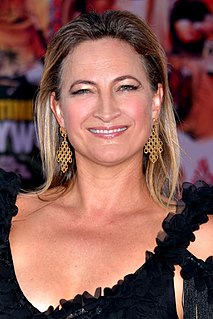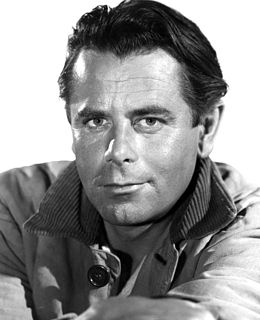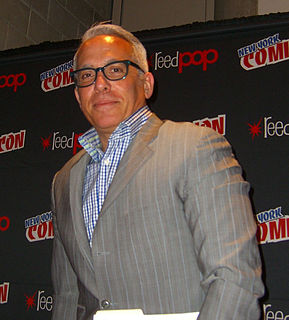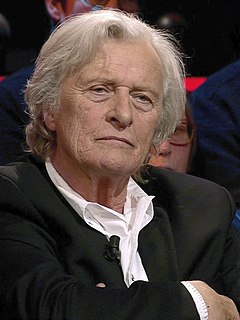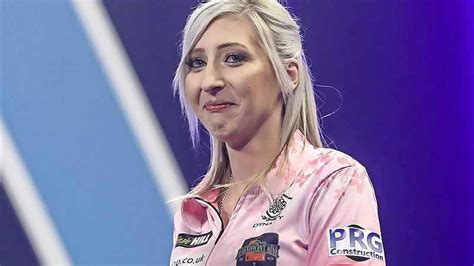A Quote by Valeria Golino
I think that it helps that I have acted. That said, it doesn't mean you're going to be a good director.
Related Quotes
Part of my message is that God never said that we weren't going to have difficulties, but you know what, He said to stay full of joy and I'm going to help you overcome. So I think that is what resonates with people and helps draw so many people. Because it is not a message that you are barely going to make it, you're a victim. We are not victims, we are victors.
When you do improv, you're everything. You're a performer, writer, and director, because you're moving the scene in the direction you want it to go, you're making it up as you go, and you're acting it. You're all of those things, so I always viewed myself that way. And with the films I've done, I've written on them, I've acted in some of them. And even ones I haven't acted in, I've acted them out just to be sure another actor can do them.
My agent called me and said, they watched you do Chopped Champions and they thought you'd be good for this competition. What do you think? And I said, well, what do you think? He said he thought it would be great and I said let's do it. When you decide to do this, you don't really think that you're going to win it. I thought it would be fun, good to test my mettle; games are fun like that. Why not? I'll try it.
Good Morning!” said Bilbo, and he meant it. The sun was shining, and the grass was very green. But Gandalf looked at him from under long bushy eyebrows that stuck out further than the brim of his shady hat. “What do you mean?” he said. “Do you wish me a good morning, or mean that it is a good morning whether I want it or not; or that you feel good this morning; or that it is a morning to be good on?
I think one third of my work is with first-time directors because I think I should, you know? Really, the difference between a first-time director and a second- or third-time director - I mean there's no director who makes enough movies anyway - but if they're talented, they have it. And there is no movie that is perfect.
Most of the time for me, you're learning what not to do, as opposed to what to do. You never know what to do. I don't, especially in a work environment. You have a little formula yourself. But when I see a director do something I think, whatever he or she just said totally screwed that actor up and now they're worse. I'm never going to do that. I'm going to figure out something else. I want my movie to be good. And that's how it works.


